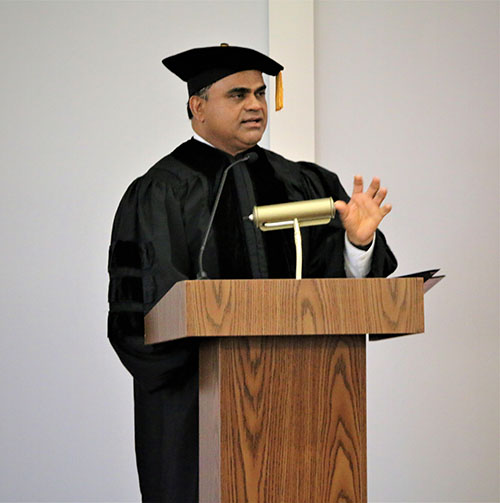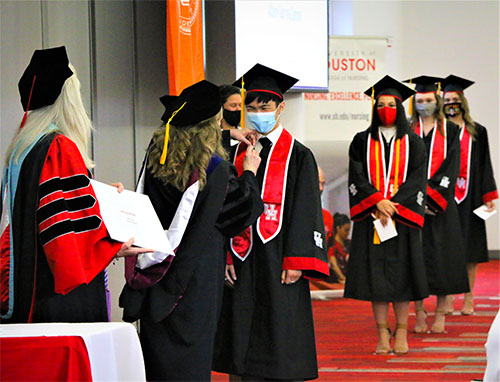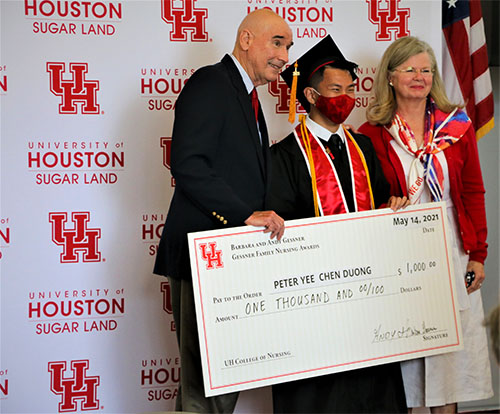New UH Nursing Graduates Ready to Educate, Care, Lead
May 14, 2021
Fort Bend County Judge K.P. George served as commencement speaker for the spring 2021 University of Houston College of Nursing graduation and pinning ceremony. George congratulated the students for persevering in their studies despite the pandemic. He urged them to take their place in a world looking to them for leadership as well as health.

“You are not giving an injection or medicine; you are giving hope,” he said. “You have a great purpose in this world.”
The event took place at UH at Sugar Land, an instructional site of the University of Houston.
Among the graduates were the first cohort of students from the Traditional Bachelor of Science in nursing (BSN) program track. The program, the first for the college, is housed at the UH at Katy Instructional Site, which opened its doors in 2019.
“These new BSN students are special in many ways,” said Kathryn Tart, professor and founding dean of the college. “First students in our first Traditional BSN track, and first in our new building in Katy. They also will be part of a national nursing initiative to have more practicing nurses equipped with a four year degree.”

Five of the traditional BSN graduates also received $1,000 awards from generous donors Andy and Barbara Gessner, whose mothers were both nurses.
The college’s rigorous program of curriculum and clinical experiences prepares students for the profession, both out of state and in the greater Houston area. In 2020, more than 97 percent of UH College of Nursing graduates stayed in Texas, of which 88 percent settled in the Houston area to work at hospitals and health care facilities in Fort Bend County and facilities in the Texas Medical Center.

“The program was very rigorous, though my professors, preceptors and mentors pushed me to really understand the entire picture of treating a person,” said recent graduate alum Mark Yap. “Being able to understand healthcare data meaningfully means understanding how to treat an individual, and all the different forms that could take, in order to understand groups as a whole.”
One hundred percent of the students of the Traditional BSN track were employed before they graduated (they still must pass the National Council Licensure Exam for Registered Nurses NCLEX-RN).
“Even though our program was tough, it gave me the skill sets I needed to be successful and adapt either in the research field or in the clinic in a constantly changing world,” Yap said.